The minister’s group was sitting on the deck, warming their souls and their bodies in the fall sunshine, taking in the view and relaxed when I arrived. As I walked to the deck to greet them, Mahan made the mistake of asking me how I was. I was not good. The past thirty minutes had been spent fuming about hunters on the back part of the farm who ignored fences and posted signs in order to hunt deer. Leisa, our neighbor, had called me on my way home from work to tell me there was shooting on the farm. She offered to go check on the cows to make sure they were not hurt. As she walked into the Sound of Music hill pasture, she heard a big diesel pickup truck drive away. Hunters, using the old road that borders the back fence line of the farm perhaps, were leaving.
One of the early lessons I learned from my father was the importance of honoring fence lines. Growing up in a rented house on a farm owned by a friend and neighbor, we were instructed to ask permission when we roamed past the fence lines that enclosed the fields surrounding our house. When my pet pig broke through the fence line, we went to pick her up, apologizing for the inconvenience, loss of corn and fixed the fence. Boundaries matter in a rural setting. They help keep everything and everyone “in their place”. Poet Robert Frost in his poem “Mending Wall” says “Good fences make good neighbors”. Every farmer knows the truth of this statement. But, good fences make no nevermind if they are not honored by the persons on both sides of the fence.
Our donkeys nibble away at board fencing. Bit by bit, in boredom or just because it feels good, they chew small bits away until the board breaks. The two inch thick boards that separated them from Junie B in the stall are a memory. Now a metal gate will keep them and their busy teeth in check. Sometimes a fence, like the rock walls in Frost’s poem, is only as good as its construction.
Reading in Albion’s Seed, I find some of the ancestral bloodkin DNA memory that helps me understand my furious response to this invasion from the outlander, the foreigner, the one who does not belong. My Calhoun ancestors came from a lawless place where borders were routinely overrun with violence and hate. When they came to the New World, they brought with them a pattern of behavior and feeling that had formed through centuries of survival on the edge. Boundaries were a matter of life and death.
When I read of some of God’s encounters with my spiritual ancestors, I discover boundaries are important to God, too. Moses is told to take off his shoes because he is standing on holy ground. The Ten Commandments give us fences to help keep our behavior contained. The Beatitudes, the New Testament equivalent of the Ten Commandments, give us a different pattern for fence construction. And the ultimate boundary, the greatest commandment according to Jesus, was to love God and to love your neighbor as yourself.
These boundaries, these fences, are a matter of life and death. The fence lines are a guide to follow. I would wander afield, be lost and separated not only from my herd, but also from my Shepherd. Like the hunters, I would be a trespasser, a breaker of the law, one who by will-full choice, breaks through the fence lines God has set for me.
Sometimes I, like the donkeys, nibble my way through to what seems to be greener grass on the other side. Other times I make a mad heedless dash through the border seeking a perceived freedom that is not really free at all. I can hear my father’s voice saying, “Mind the fence lines, Peggy”. And, I hear God’s voice holding me to accountability for minding my own fence lines, keeping my ego centered self contained, while I learn to live with my limits. I am mortal. I am not Queen of All I Survey. I am not God.
I hope God is more merciful to me than I was to the hunters when I break the fence lines. It would not do for me to be in charge.
Subscribe to:
Post Comments (Atom)

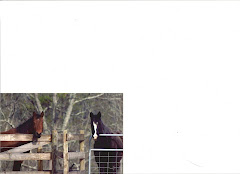
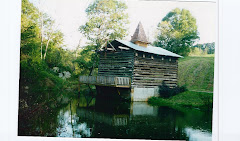


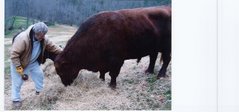
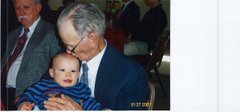
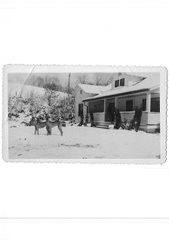
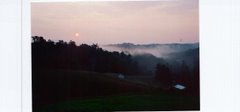
No comments:
Post a Comment